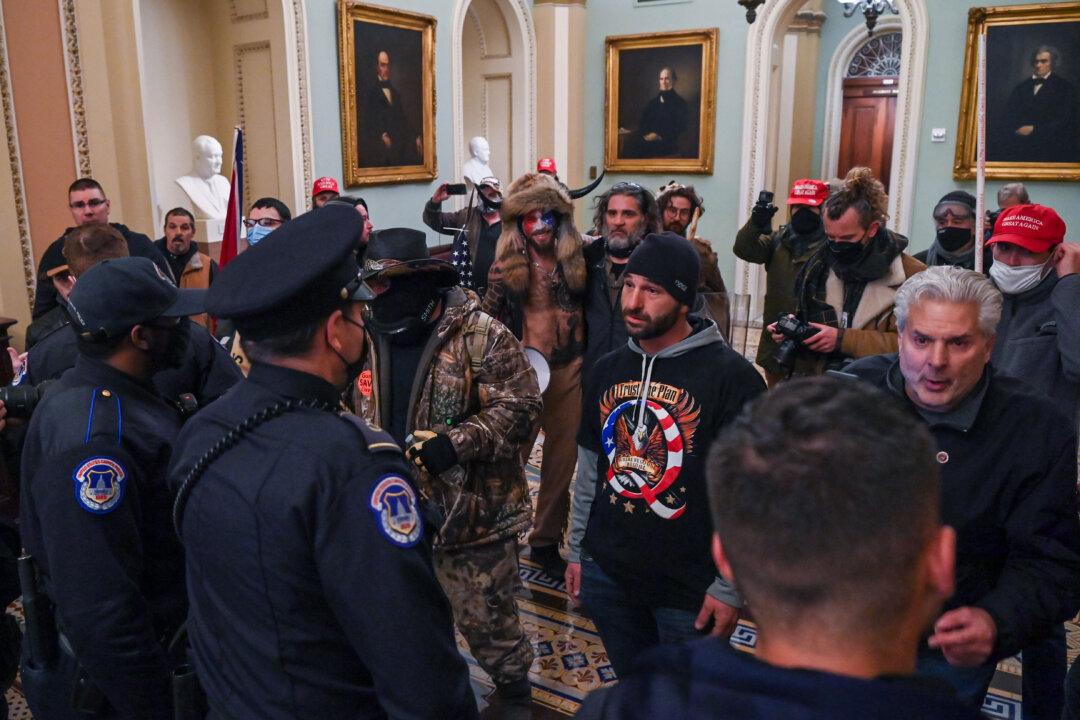An Iowa man who was among the first people to breach the Capitol building on Jan. 6, 2021, has been sentenced to five years in prison in relation to five felony charges related to the breach.
Douglas Jensen, 43, was also given three years of supervised release, and was ordered to pay $2,000 in restitution.




